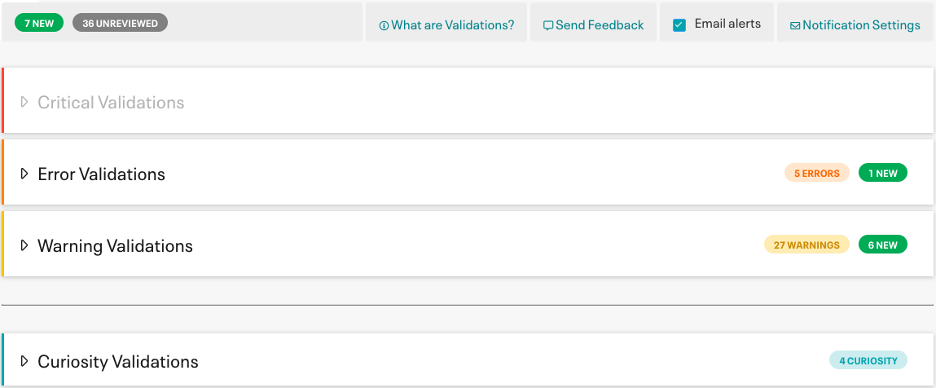Note: this publication has been updated from original blog post published on June 3, 2021
Cloudera Support’s cluster validations proactively identify known problem signatures contained in customers’ diagnostic data with the goal of increasing cluster health, performance, and overall stability. Cluster validations are included in a customer’s enterprise subscription at no additional cost. All customers with access to the Support case portal will also be able to take advantage of cluster validations. In order to take advantage of validations customers need only provide the latest diagnostic bundle from their supported clusters.
Cluster diagnostic data (obtained from diagnostic bundles) can be sent to Cloudera Support directly from the product (CDP Private Cloud Base or CDH/CM), as an attachment in a support case, or manually through a phone_home script available on cloudera.com.
Cloudera’s proactive database consists of over 300 known problem signatures relating misconfigurations, security vulnerabilities, performance degradation, deviations from our known best practices, as well as many other types of commonly experienced issues that can result in general cluster instability.
Cluster validation alerts also serve as a mechanism to ensure CDH/CM clusters are prepared for a successful upgrade to Cloudera’s latest version of Cloudera Data Platform (CDP). Configuration best practices required for a smooth upgrade are reviewed and raised accordingly on each cluster asset if it’s out of alignment.
Validation alerts are designated a severity level, including critical, error, warning, information, and curiosity based on the impact to the cluster. Included with the alert are the relevant problem and solution details, affected hosts in the cluster, as well as applicable documentation.
The following screenshot taken from MyCloudera illustrates the format in which validation alerts are displayed to customers. Expanding each row allows access to the specific alert details pertaining to each alert category.

Self-service on-demand access to cluster validations has been available to Cloudera’s customers since March 2021. Thousands of known configuration issues have been resolved proactively by customers since go-live and Cloudera is dedicated to continuously creating new validators in order to expand our proactive and predictive services at all times.
We’ve put together this short video introducing validations in MyCloudera, which includes a demo for you to see the tool in action.
New validations functionality in MyCloudera includes:
- The addition of “critical” cluster alerts dedicated to CDP upgrade readiness
- Export/download functionality for any given cluster (csv format)
- Clear designation and identification of newly uncovered cluster alerts
- The ability to mark specific validation alerts as “Reviewed” to classify those that have been actioned and resolved (this setting is persisted when new diagnostic bundles are submitted)
- The capability of silencing an entire cluster’s notifications if the environment is designated as a sandbox, for example
- Self-service control over who is designated as a “Validation Alert Recipient” on the account in question (controls email notifications)
Cloudera Support recommends that customers review their validation alerts contained in MyCloudera under Assets and perform the recommended corrective actions.
If planning or consultative assistance is required, customers can contact their sales account team for advice and recommendations. For technical assistance with a break/fix support matter relating to the validation, a case can be filed using the instructions here.
Cloudera is continuously expanding, improving, and investing in its predictive alerting capabilities. If you have any feedback or suggestions please let us know: predictive-support-feedback@cloudera.com
Note: this publication has been updated from original blog post published on June 3, 2021



